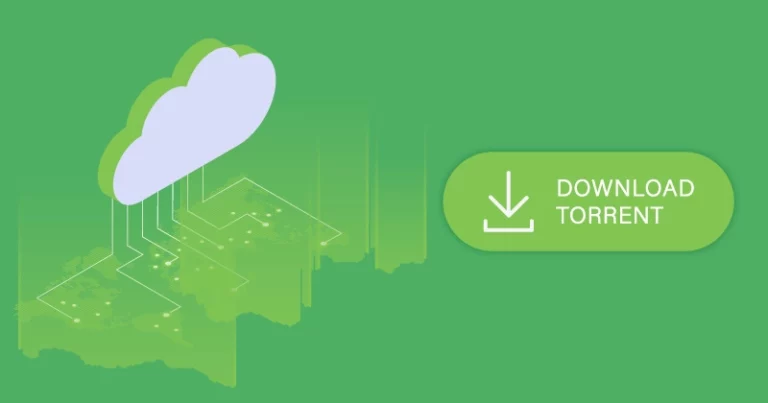Many people sometimes ask if torrenting is safe or not. And the truth is that they have every right to be concerned. Downloading torrents is a hazardous business. Due to copyright laws, it can get you in trouble, but it can also cause a lot of problems for your device. You might find software, videos, or even TV shows that could be dangerous to your device.
Torrenting allows you to watch movies, read e-books, and download software that you otherwise would not be able to pay for. ISPs, movie studios, and governments, on the other hand, do not share this viewpoint. Furthermore, downloading the incorrect files exposes you to a wide range of cyber risks.
As a result, you should download or upload torrents with caution to protect your privacy and security. What can you do, though, to guarantee that you torrent safely and anonymously? How Can You Torrent Without Getting Hacked?
Using a VPN or proxy, for example, can let you use torrents more safely. We’ll concentrate on proxies because they are better than VPNs for torrenting. However, not all proxies are suitable for torrenting. We’ll get to that later. Let’s go over some of the most common risks of downloading things like movies and TV shows. Then we’ll talk about how proxies can help you avoid them.
Torrenting’s Common Risks
When using torrents, especially when downloading them, a lot of things might go wrong. The following are some of the most prevalent hazards linked to torrenting:
Copyright trolls
Copyright trolls may be aggravating as well as harmful. In the torrent swarm, they may just find your IP address and send it to copyright agencies and lawyers. They might even use it to track down and threaten your Internet service provider. Many of them are con artists who will demand that you pay them a particular amount of money in order to prevent being sued for a larger sum.
Scanning of ports
Hackers lurk in torrent swarms, and they have your IP address at their disposal. They can use it to scan your network’s open ports for security holes that they may exploit to take control of your device or network.
Malware
Because many torrents are posted by hackers, you can never be sure if the torrent you download is safe or dangerous. Using files that were downloaded from a malicious torrent puts your computer at risk for a wide range of malware attacks, including ransomware, crypto miners, adware, and spyware.
Throttling of bandwidth
This isn’t hazardous, but it is quite inconvenient. As soon as your ISP finds out that you’re torrenting, they may slow down your connection, which will make it slower. And you don’t want that while you’re downloading or uploading torrents. If torrenting is against your ISP’s terms of service, your account may be terminated.
How Can Proxies Assist You with Torrenting Safely?
By giving you a different IP address, proxies can help you hide your identity when you’re online. The peers in the torrent swarm you’re a member of will only see your proxy’s IP address this way. As a result, tracing your torrenting activity back to you will be difficult. This is particularly useful since torrent swarms, particularly those on public trackers, might be infested with copyright trolls or hackers.
As a result, they won’t be able to see your true IP address and hence identify your location, ISP, or device if you use a proxy. Traffic logs are the only way to connect your real IP address to your proxy’s IP address. Because reputable proxy services don’t maintain data records in the first place, you can be confident that they won’t get into the wrong hands if you use one.
A decent proxy can help you experience quicker torrent transmission in addition to masking your IP address. Proxies, unlike VPNs, do not encrypt communications, making them speedier. If you wish to evaluate their speed before using them, this may be useful.
How to Pick a VPN for Torrenting Safely
- Any VPN will not suffice.
- For safe torrenting, you’ll need a reliable source with a few key features:
- If the VPN connection breaks for whatever reason, a “kill switch” disables all downloads.
- This stops unencrypted torrent traffic from being transmitted straight from your device.
The astringent no-logs policy stipulates that the VPN service will not monitor or record your downloads and that it will not log your real IP address or other identifying information while you download.
Fast download speeds aren’t necessarily required, but who doesn’t appreciate them?
NordVPN comes highly recommended. It’s one of the quickest VPNs we’ve used, with top-notch security that prevents data leakage outside of the encrypted tunnel. The firm keeps no records of personal information and permits filesharing on any server. Surfshark and ExpressVPN are other excellent choices.
What Is the Best Torrenting Proxy?
Because of their invisibility, unlimited data residential proxies are the finest proxies for torrenting. They keep your IP address private at all times, thus ensuring that no one may view or exploit it in any manner. Socks5 proxies are the way to go when it comes to proxy types based on protocol.
Simply ensure that your residential proxies are private, meaning that no one else may use them but you. Although private residential proxies are rather pricey, they offer excellent anonymity, security, and speed, making them ideal for torrenting. No matter how tempting it is to save money, avoid using free or public proxies. Because they aren’t owned by anybody, they can’t guarantee privacy or security.
Final Words:
Torrenting is a simple way to get free downloads; all you have to do is do it safely. Using home proxies will keep you safe from the perils of torrenting. They will keep you concealed from copyright trolls and hackers by concealing your IP address.



